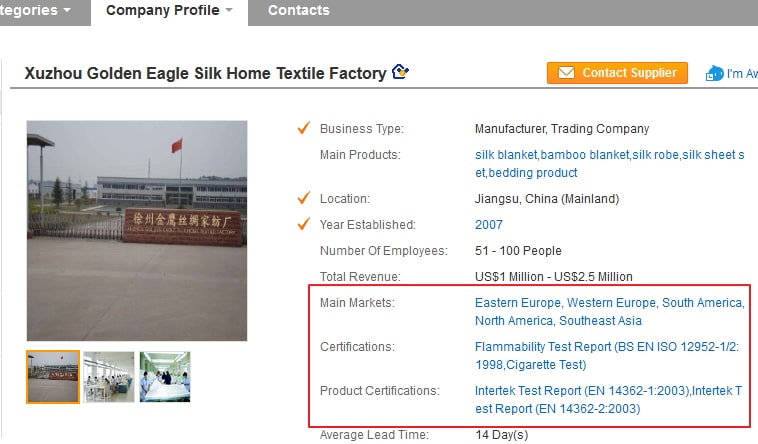Consumer Safety Regulations, Labeling, and Other Requirements
One thing you must keep in mind at all times when evaluating what product(s) to import is consumer safety regulations and other agency requirements. The U.S., for example, has a number of agencies (including the FDA, EPA, DOT, CPSC, FTC, etc.) regulating everything from food, drugs, weapons, vehicles, and more. Almost all countries have similar agencies. Not all products face strict regulation, mainly those that pose little risk of harm to the user. And others are extremely heavily regulated. Some of the most heavily regulated products include:
- Food
- Drugs
- Weapons
- Vehicles
- Supplements, vitamins, etc.
- Most products used by children
- Items susceptible to catching fire (i.e. candles, matches, tents, etc.)
Health Canada, which is the main safety regulator in Canada, lists all of the products that must meet certain requirements to be imported. This list will be similar in many countries.
Manufacturer or Importer, You're Equally as Responsible
I've made this point in several other articles, but it warrants repeating: as an importer, you have ultimate responsibility. If a Supplier manufactures an unsafe product and you import it, you are responsible. Very few countries draw any distinction between importer and manufacturer.
How to Tell if Your Product Faces Special Restrictions
Unfortunately, there are hundreds of countries in the world and most have their own set of laws regulating product imports, and it's impossible to list every possible product facing restrictions for every country. Generally, if your product fits the description of the items listed above, there's a good chance it will have special requirements. The first step you should take is to figure out the agency that regulates consumer safety in the country you intend to sell in. In Canada, for example, this is Health Canada.
Once you have that bit of information, and if you have a suspicion that your product may face restrictions and regulations, here's a list of places to explore next:
- Google your product and “import into xyz country”
- Search Alibaba or other trading site to see if Suppliers are advertising having certification
- Call your country's border agency
- Speak to a customs broker
If you Google for example, “Importing children's toys into Canada”, the first result is a website from the Government of Canada listing a very detailed explanation of the definition of Children's Toy along with the import requirements for it. A reader asked about importing Children's clothes into Britain, and similarly, I was able to get a very good sense of the import requirements for the product within a few minutes.
Another good place to look for information is Alibaba or other similar Chinese trading websites. If frequently you see Suppliers mentioning that they have various certifications, i.e. BS EN ISO 12952-1/2:1998 certification, the chances are that these products face certain restrictions.

You also always call your local border agency and they can direct you to the appropriate agency who can help inform you if your product faces restrictions. You may be met with typical government bureaucracy and delay, so you may find it easier simply to talk to a customs broker who will likely have dealt with similar products in the past and can give you some guidance. They might charge you for this, or if you have a good ongoing relationship with your customs broker, they may simply advise you for free.
Found an Amazing Product that No One Else is Importing?
If you found an amazing product that you can't find anyone else selling anywhere there could be a very good chance it's facing restrictions. One example I encountered was boating life jackets. There's almost no one selling imported life jackets anywhere in Canada or the U.S. Why? Because these products face such heavy regulation there's almost no factories in China that can meet these standards.
How Are Regulations Enforced?
In many countries, safety regulations and the like are not enforced at the time of import, at least outside of labeling requirements. Instead, they are voluntarily enforced, meaning they're assumed to meet all necessary regulations to be sold, and if they are found not to, you may face fines and/or criminal punishment. To give some idea of the power of safety regulators, in Canada and many other countries, safety regulators can go so far as to enter your home if it's believed activities related to the import of unsafe products are taking place there (especially relevant for home-based businesses).

Certain products are exception to this to rule, and regardless, just as voluntary enforcement for taxes doesn't mean that you shouldn't pay tax, voluntary enforcement for safety regulations doesn't mean you should ignore them (or can get away with it). Again, if you blatantly ignore safety regulations you could potentially be found civilly and criminally responsible.
The exception to the above is that customs officials will often enforce labeling requirements at the time of import, i.e. a cautionary “choking hazard” label for certain items.
Consumer Safety Regulations and Other Agency Requirements




Hello, i’m new and I’m just starting to sell on amazon. My questions are: Do you work with chine’s manufacturers, who’s doesn’t have a FDA certification? What the consequences could be if the product does not have FDA certification? Can i sell a product without FDA certification? I will sell kitchen tools in USA(Kitchen&Dining category).
Thank you, very much!
Not all products require fda certification. Many kitchen products do as you’ve highlighted. Your shipments very well can be refused entry – it’s best to talk to a customs broker like PCB.ca to figure out the requirements before you import.